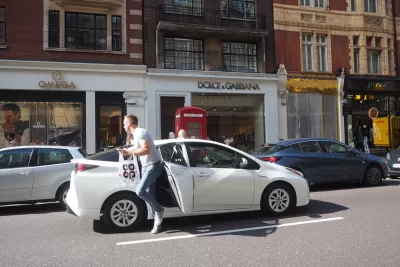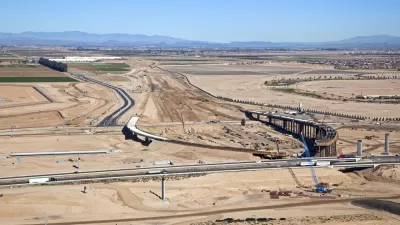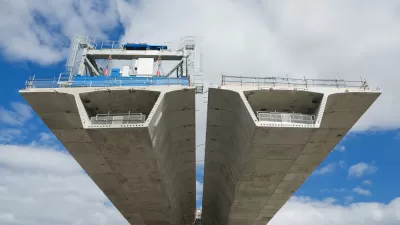The reality of ride hailing has fallen well short of the wishful thinking about reduced congestion and reduced pollution that defined the early days of Uber and Lyft.

"According to the Union of Concerned Scientists, ride-hailing trips today result in an estimated 69 percent more climate pollution on average than the trips they displace," reports Andrew J. Hawkins.
The Union of Concerned Scientists published a study on February 25 that included those findings.
At the heart of those findings is the fact that ride-hailing trips have been shown to displace trips from low-carbon modes, like public transit, biking, and walking. Hawkins says that reality also provides a path toward reduced emissions: "Uber and Lyft could reduce these emissions with a more concerted effort to electrify its fleet of vehicles or by incentivizing customers to take pooled rides, the group recommends."
As noted in the article, both Uber and Lyft have expressed a desire to limit emissions, but delivering on those expressed desires will be a tall order. Both companies have responded to the report, Uber promising to "continue to invest in products and advocate for policies that reduce car ownership, promote more pooled trips and support greater adoption of bikes, scooters, green vehicles and the use of public transit." Lyft called the study misleading.
FULL STORY: Uber and Lyft generate 70 percent more pollution than trips they displace: study

Planetizen Federal Action Tracker
A weekly monitor of how Trump’s orders and actions are impacting planners and planning in America.

Restaurant Patios Were a Pandemic Win — Why Were They so Hard to Keep?
Social distancing requirements and changes in travel patterns prompted cities to pilot new uses for street and sidewalk space. Then it got complicated.

Map: Where Senate Republicans Want to Sell Your Public Lands
For public land advocates, the Senate Republicans’ proposal to sell millions of acres of public land in the West is “the biggest fight of their careers.”

Maui's Vacation Rental Debate Turns Ugly
Verbal attacks, misinformation campaigns and fistfights plague a high-stakes debate to convert thousands of vacation rentals into long-term housing.

San Francisco Suspends Traffic Calming Amidst Record Deaths
Citing “a challenging fiscal landscape,” the city will cease the program on the heels of 42 traffic deaths, including 24 pedestrians.

California Homeless Arrests, Citations Spike After Ruling
An investigation reveals that anti-homeless actions increased up to 500% after Grants Pass v. Johnson — even in cities claiming no policy change.
Urban Design for Planners 1: Software Tools
This six-course series explores essential urban design concepts using open source software and equips planners with the tools they need to participate fully in the urban design process.
Planning for Universal Design
Learn the tools for implementing Universal Design in planning regulations.
Heyer Gruel & Associates PA
JM Goldson LLC
Custer County Colorado
City of Camden Redevelopment Agency
City of Astoria
Transportation Research & Education Center (TREC) at Portland State University
Camden Redevelopment Agency
City of Claremont
Municipality of Princeton (NJ)





























